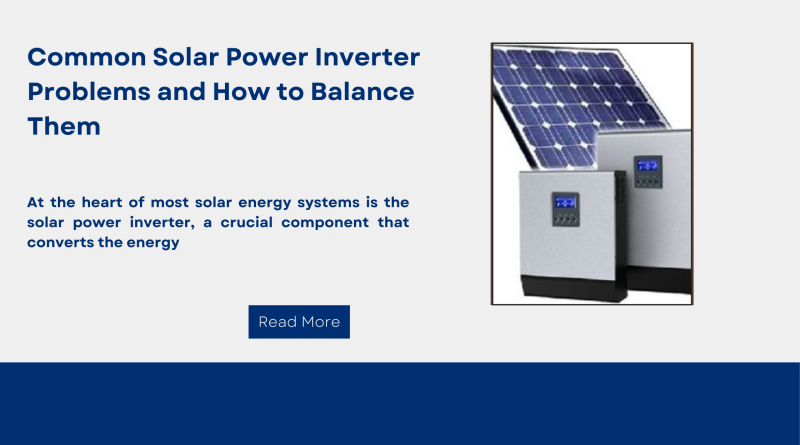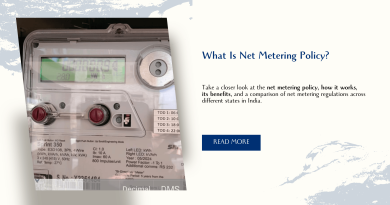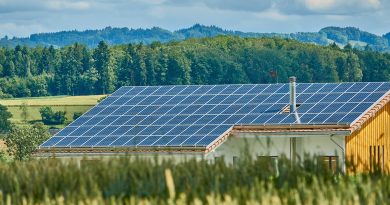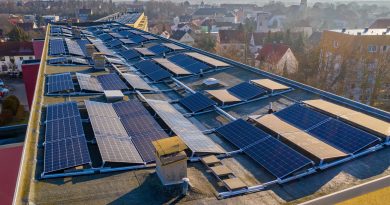Common Solar Power Inverter Problems and How to Balance Them
Solar power has become a popular choice for many households and businesses aiming to reduce their carbon footprint and energy bills. At the heart of most solar energy systems is the solar power inverter, a crucial component that converts the energy captured by solar panels into usable electricity for your home or business. While solar power inverters are generally reliable, they can encounter problems from time to time. Understanding these issues and knowing how to address them can help ensure your solar energy system runs smoothly and efficiently. In this blog post, we’ll explore some common solar power inverter problems and offer practical tips on how to manage them.
Table of Contents
Understanding Solar Power Inverters
Before diving into the problems, let’s quickly review what a solar power inverter does. When solar panels generate electricity, it’s in the form of direct current (DC). Most home appliances and the power grid use alternating current (AC). The inverter’s job is to convert DC into AC, making it usable for your home or to feed back into the grid.
Common Solar Power Inverter Problems
1.Inverter Not Turning On
One of the most common issues is when the inverter doesn’t turn on at all. This can be alarming, but it’s often a simple fix. Here’s what you can check:
Power Supply: Ensure that the inverter is receiving power. Check the circuit breakers and fuses connected to the inverter. Sometimes, a tripped breaker or a blown fuse can be the culprit.
Connections: Verify that all cables and connections are secure. Loose connections can prevent the inverter from starting.
Manuals and Resetting: Consult the inverter’s manual for instructions on resetting the device. Sometimes a simple reset can resolve the issue.
2.Low Power Output
If your solar power inverter is on but not producing the expected amount of power, consider the following:
Solar Panel Issues: Ensure your solar panels are clean and free of debris. Dust, dirt, or even bird droppings can affect their performance.
Shade and Obstructions: Check for any new obstructions that might be casting shadows on your panels. Even a small amount of shade can reduce power output.
Temperature: Inverters can be sensitive to high temperatures. Ensure they are installed in a well-ventilated area to prevent overheating.
3.Flashing or Error Lights
Many inverters come with indicators that show their operational status. If you notice flashing or error lights, it’s a sign that something might be wrong. Here’s how to tackle this:
Error Codes: Check the inverter’s display for error codes. Refer to the user manual to understand what these codes mean and how to address them.
Overvoltage or Under voltage: Inverters can sometimes shut down if the voltage is too high or too low. Ensure the input voltage from the solar panels is within the acceptable range for your inverter.
4.System Not Synchronizing with the Grid
If your system is designed to feed excess energy back to the grid, it needs to synchronize with the grid’s voltage and frequency. If it’s not syncing properly, you might experience issues:
Grid Outages: Sometimes, the problem is with the grid itself. If there’s a power outage or grid issue, your inverter may not be able to sync.
Inverter Settings: Ensure the inverter settings match the grid requirements. Some inverters allow you to adjust settings for different grid conditions.
5.Inverter Making Unusual Noises
Inverters are generally quiet, so if you hear unusual noises such as buzzing or clicking, it could indicate a problem:
Fan Issues: Many inverters have fans to keep them cool. If the fan is noisy, it might be dirty or failing.
Internal Components: Strange noises could also be due to internal component issues. If cleaning the fan doesn’t resolve the noise, it might be time to call a professional.
6.Overheating
Solar inverters can overheat, particularly in hot climates or if they are not installed correctly. Overheating can reduce efficiency and even damage the inverter:
Ventilation: Ensure the inverter is installed in a well-ventilated area. Avoid placing it in direct sunlight or enclosed spaces.
Cleaning: Regularly clean the inverter and surrounding area to prevent dust buildup, which can affect cooling.
How to Balance and Resolve These Problems
1.Regular Maintenance
Routine maintenance is key to preventing and addressing inverter issues. Here’s what you can do:
Inspect Periodically: Regularly check the inverter and solar panels for any visible issues or signs of wear.
Clean Panels: Keep your solar panels clean and free of obstructions to ensure optimal performance.
2.Professional Servicing
For more complex issues or if you’re unsure how to resolve a problem, it’s always best to consult a professional:
Certified Technicians: Hire a certified technician to inspect and service your inverter. They have the expertise to diagnose and fix issues properly.
Warranty Checks: If your inverter is still under warranty, check with the manufacturer or installer for covered repairs or replacements.
3.Monitoring Systems
Investing in a monitoring system can help you keep track of your inverter’s performance:
Real-time Monitoring: Many modern inverters come with monitoring capabilities that allow you to track performance and detect issues early.
Alerts and Notifications: Some systems send alerts if they detect problems, enabling you to address issues before they become major.
4.Proper Installation
Proper installation can prevent many issues from occurring:
Follow Guidelines: Ensure your inverter is installed according to the manufacturer’s guidelines and local codes.
Professional Installation: Always use a qualified professional for installation to ensure everything is set up correctly.
Conclusion
Solar power inverters play a vital role in converting solar energy into usable electricity; however, like any technology, they can encounter problems. By understanding common issues and knowing how to address them, you can keep your solar energy system running smoothly. Regular maintenance, professional servicing, and proper installation are key to ensuring your inverter performs at its best. If you ever find yourself facing an issue with your inverter, remember that help is available, and with the right approach, most problems can be resolved efficiently. Embracing solar energy is a step toward a more sustainable future, and keeping your inverter in top shape will help you enjoy the benefits of solar power for years to come.
Visit SolarClue® to see the best Solar Inverter. SolarClue® actively sells solar energy products at discounts of up to 50% on its online marketplace.
FAQ
1.What is a solar power inverter?
It’s a device that converts direct current (DC) electricity, which is what a solar panel generates, to alternating current (AC) electricity, which the electrical grid uses.
2. Is a solar inverter good for a home?
Yes. Without a solar inverter, you won’t be able to use the electricity generated by your panels to power your house. Think of the inverter as a translator between your solar panels and your house.
3.Are solar inverters safe?
Most of the time, solar panels are extremely safe. Unfortunately, not all solar systems are comprised of the same components or installed by the same sure hand.
4.Can solar inverter work without battery?
Yes, if you are connected to an electrical grid, you can use solar panels and inverters without battery storage.
5.How to choose a solar inverter?
The size of your solar array is the most important factor in determining the appropriate size for your solar inverter.




